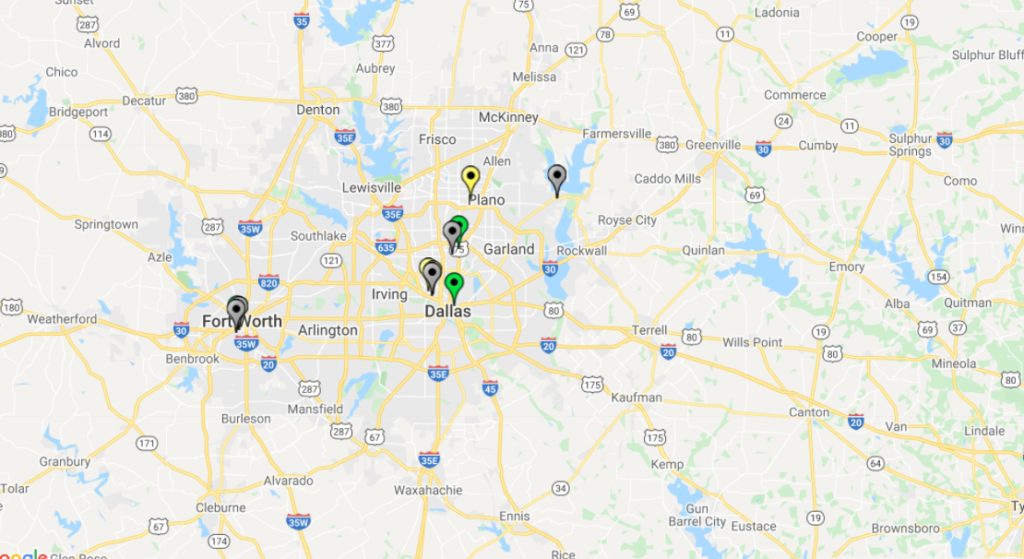Will You Have Access to High-Level Life Support During the Pandemic?
We hear a lot about ICU and hospital bed availability, but after reading about a young father in San Angelo who later died after a protracted battle with COVID, we felt it was important to ask another question.
What kind of availability does the county have when it comes to so-called advanced care, or higher-level care?
Caleb Wallace died last week, leaving behind a wife, three daughters, and another baby on the way. He had spent weeks on a ventilator, but a device called an ECMO — extracorporeal membrane oxygenation — machine was his last shot at survival.
“A medical device known as an ECMO machine is Jessica’s ‘last hope,’ but all her efforts so far to find an available device have proven unsuccessful,” his wife explained in an interview with Go San Angelo. The hospital Wallace was at didn’t have one. Other hospitals that do have them were inundated with COVID-19 cases — like San Antonio, Houston, and Dallas.
“We’ve been calling people left and right trying to find that miracle,” Jessica told the publication. “A hospital in Plano removed (Caleb) from their waiting list because he’s been intubated too long. … Without that machine, the doctors have said Caleb’s chances are ‘slim to none.'”

The lack of available ECMO devices that the Wallace family experienced is happening across the south, where COVID cases continue to climb.
ECMO is considered the highest level of support — it functions as the heart and lungs outside the body, doing the work of those organs in a bid to tax them less, and allow the patient a chance to heal. Before COVID, it was used primarily for organ transplant candidates. Nowadays, it’s also used to take stress off the COVID-ravaged lungs of a patient.
“The ECMO logjam primarily stems from just how many people it takes to care for each patient. A one-on-one nurse is required, 24 hours a day,” NPR explained last week. “The staff shortages that many hospitals in hot zones are facing compound the problem.”
Dallas is not immune to the problem.
“There are waitlists for ECMO machines,” Steve Love, president and CEO of the Dallas-Fort Worth Hospital Council, said of the national issue. “The last statistic I saw, only 264 hospitals out of 6,000 in the U.S. had ECMO machines with trained staff to run them.”
Love said that while the county does have ECMO machines, they don’t as a rule give out detailed individual information on hospitals.
“Let me say though, that for the entire county, it is probably less than 20,” he added.
But ECMO isn’t just used for COVID-19 patients, which means that not only COVID-19 patients are waiting.
“It has been found in extremely serious COVID-19 cases, ECMO was like a last resort to hopefully save the patient,” Love said. “ECMO machines are sometimes used for heart attack, acute respiratory distress syndrome, pneumonia, ruptured lung, and end-stage lung disease.
“There are two types of ECMO support,” Love explained. “One is VENO-VENOUS, which helps support the lungs, and VENO-ARTERIAL which helps support the lungs and heart.
“The average time patients are on the ECMO machine is 9-10 days,” he continued. “Obviously, some longer and some shorter but an overall average of 9-10 days. A physician has to assess the risk vs. benefit for a patient as some patients are not really candidates for the ECMO machine.”
And ECMO does come with risks.
“There can be serious side effects such as bleeding, stroke, blood clots, and infection,” Love said. “It really is a medical decision in the professional wisdom of a physician as to eligible candidates for ECMO support. Many times patients travel to another city or state if an ECMO machine is available.”
In other news:
- Gov. Greg Abbott announced that the Texas Health and Human Services Commission (HHSC) is providing approximately $286 million in emergency Supplemental Nutrition Assistance Program (SNAP) food benefits for the month of September as the state continues its response to the COVID-19 pandemic. You can apply for benefits, including SNAP and Medicaid, at YourTexasBenefits.com.
- Abbott has issued a proclamation recognizing September 2021 as Preparedness Month in Texas. Coinciding with National Preparedness Month, this month is a time to encourage Texans to develop and practice emergency plans to protect their household and property in the event of an emergency or natural disaster by creating a communication strategy, deciding on an emergency meeting location, building a three-day disaster preparedness kit, and signing up for emergency alerts.









